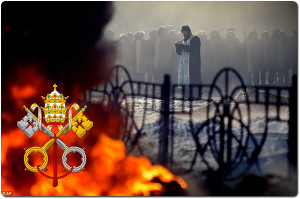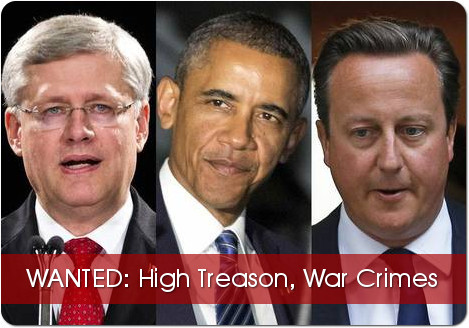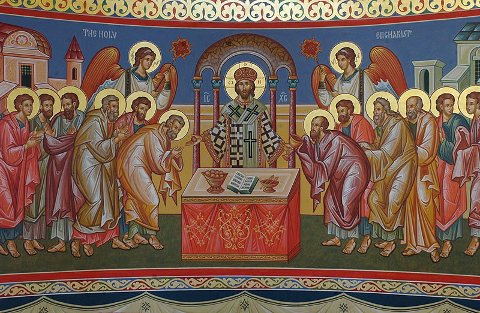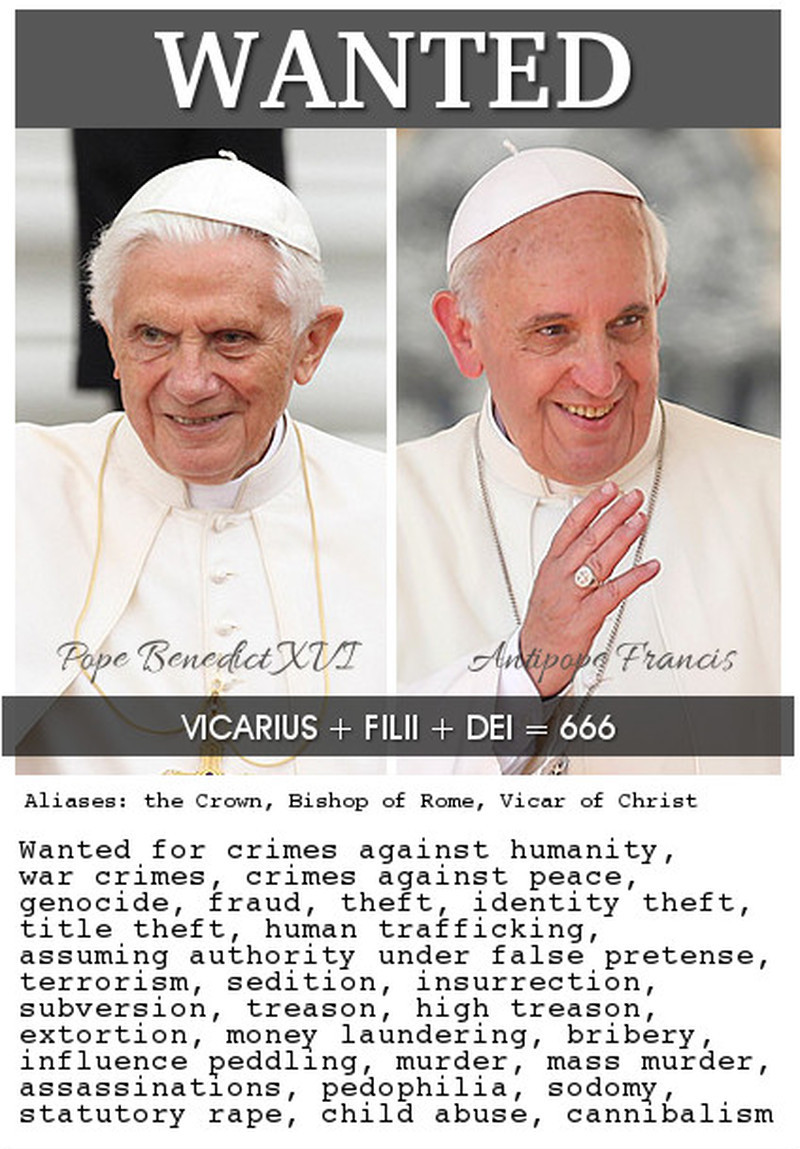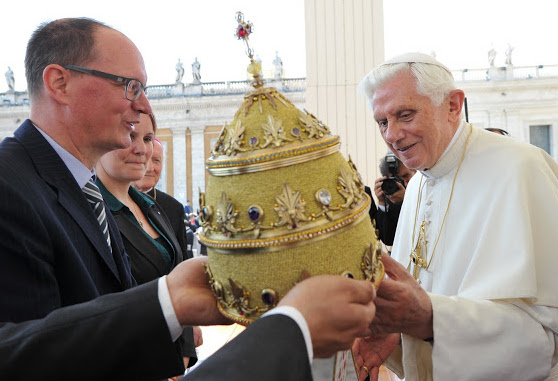U.S. government now view protesting Americans as terrorists – You’re either with us or against us.
Latest news, World news Tuesday, February 22nd, 2011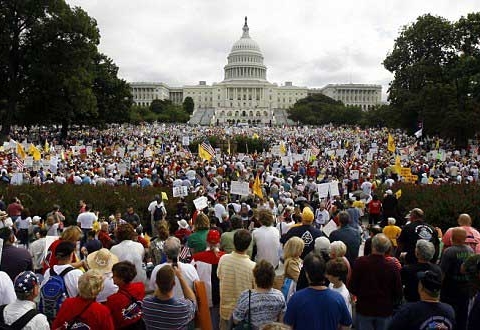
Violent Radicalization and Homegrown Terrorism Prevention Act of 2007. Never heard of it. That is because the U.S. Senate hasn’t yet passed it but the Obama government is trying to get it passed before the Egyptian revolution, for Change, Liberty and Social Justice lands on U.S. soil. The Violent Radicalization and Homegrown Terrorism Prevention Act of 2007 is a bill sponsored by Rep. Jane Harman (D-CA) in the 110th United States Congress. Its stated purpose is to deal with “homegrown terrorism and violent radicalization”.
The bill will:
Amended the Homeland Security Act of 2002 to add provisions concerning the prevention of homegrown terrorism (terrorism by individuals born, raised, or based and operating primarily in the United States).
In the bill the term `homegrown terrorism’ means the use, planned use, or threatened use, of force or violence by a group or individual born, raised, or based and operating primarily within the United States or any possession of the United States to intimidate or coerce the United States government, the civilian population of the United States, or any segment thereof, in furtherance of political or social objectives.
This bill was passed in the House on October 23, 2007 with a vote of 404 to 6. It was introduced to the Senate on August 2, 2007 as S-1959. and has been referred to the Committee on Homeland Security and Governmental Affairs. The Bill was introduced by Sen. Susan Collins (R-ME), and has been co-sponsored by Sen. Norm Coleman (R-MN). The Senate bill was reported dead by the Bill of Rights Defense Committee and CQ Politics. A staffer to Sen. Joe Lieberman, indicated that the bill is not dead.
Critics charge that the vagueness of the bill’s definitions would permit the government to classify many types of venerated American political activity, such as civil disobedience (political dissent), as terrorism. Critics frequently cite Section 899A, which reads, in part: “The use, planned use, or threatened use, of force …to coerce the ..government, (or) civilian population ..in furtherance of political or social objectives”, as particularly problematic. They argue that major societal reforms, which are now accepted but were perceived at the time as threatening to the government, such as civil rights, suffrage, and others, would be classified as terrorism.
Then-presidential candidate Dennis Kucinich said he believed the bill to be “unconstitutional” and has referred to the bill as a “thought crime bill” The Baltimore Sun published an opinion article by Professor Emeritus Ralph E. Shaffer and R. William Robinson, titled “Here come the thought police.”
Conservative commentator Devvy Kidd writes: “Since the bill doesn’t specifically define what an extremist belief system is, it is entirely up to the interpretation of the government…. Essentially they have defined violent radicalization as thought crime.”
In an interview aired on Democracy Now, Academic and author Ward Churchill said: “HR 1955, as I understand it, provides a basis for subjective interpretation of dissident speech….”
The American Civil Liberties Union (ACLU) issued a statement saying: “Law enforcement should focus on action, not thought. We need to worry about the people who are committing crimes rather than those who harbor beliefs that the government may consider to be extreme.”
The National Lawyers Guild and the Society of American Law Teachers issued a joint statement opposing the Bill: “The National Lawyers Guild and the Society of American Law Teachers strongly urge the Senate to refuse to pass the Violent Radicalization and Homegrown Terrorism Prevention Act of 2007.”
The Center for Constitutional Rights opposes the bill.
The John Birch Society wrote in an Action Alert: “the legislation could attack First Amendment rights by mandating the government to clamp down on free speech online, among other things.”
In the wake of the successful Egyptian revolution against government oppression the Obama government is planning to reintroduce the bill and have it passed. The U.S. government now fears the same fate as dictatorial ruler Hosni Mubarak. The U.S. government fear that the U.S. people may soon echo the call of the Egyptian people and begin to petition for change.
The Declaration of Independence states that government derives its just – or lawful – powers from the “consent of the governed.” The underlying principle implied in the Declaration was that “We the People” are the true and rightful government of the United States, and as Abraham Lincoln declared in his Gettysburg Address, “government of the people by the people and for the people shall not perish from this earth.” Elected and appointed officials are managers selected to work on our behalf in order to accomplish our collective will. We do not, however, elect them to dictate what our will is, or should be.
However, in the event that government becomes one consisting of rulers rather than representatives, the U.S. government determined over 200 years ago what the course of action should be.
“We hold these truths to be self-evident, that all men are created equal, that they are endowed by their Creator with certain unalienable Rights, that among these are Life, Liberty and the pursuit of Happiness. — That to secure these rights, Governments are instituted among Men, deriving their just powers from the consent of the governed…”
In the event that Americans find themselves at odds with their government, the Declaration tells them: “… That whenever any Form of Government becomes destructive of these ends, it is the Right of the People to alter or to abolish it, and to institute new Government, laying its foundation on such principles and organizing its powers in such form, as to them shall seem most likely to affect their Safety and Happiness.”
According to the nation’s own foundational text, the American people have the right: “… when a long train of abuses and usurpations, pursuing invariably the same Object evinces a design to reduce them under absolute Despotism, it is their right, it is their duty, to throw off such Government, and to provide new Guards for their future security. — Such has been the patient sufferance of these Colonies; and such is now the necessity which constrains them to alter their former Systems of Government.”
What measures do the U.S. government seek to implement against the American people they now deem as terrorists? The same power as Egyptian dictator Mubarak sought – to shut down all lines of communication. The U.S. government is now working to reintroduce an Internet kill switch bill. A bill handing President Obama power over privately owned computer systems during a “national cyberemergency,” and prohibiting any review by the court system. The bill is being reworded to include government control of all wireless Internet (Wi-Fi). Why does the U.S. government want to control Wi-Fi? When the Egyptian government shut down the cable Internet Wi-Fi was used to keep the rest of the World apprised to what was happening in Egypt. HR 1955 titled the Violent Radicalization and Homegrown Terrorism Prevention Act of 2007 mentions the Internet as a main source for terrorist propaganda. The bill even mentions streams in obvious reference to many of the patriot and pro-constitution Internet radio networks that have been formed. It also mentions that homegrown terrorists span all ages and races indicating that the Congress is stating that everyone who conveys dissatisfaction with or opposition to the policies of government is a potential terrorist.
Short URL: https://presscore.ca/news/?p=1273

 The Halifax International Security Forum was founded in 2009 as a propaganda program within the German Marshall Fund (founded June 5, 1972 by West German Chancellor Willy Brandt) by the Crown in Canada using Crown Corp ACOA & DND funds. The Halifax International Security Forum is a front that is used to recruit top US, UK and Canadian gov and military officials as double agents for Canada's WWI, WWII enemy and wage new Vatican Germany Cold War.
High Treason: s.46 (1) Every one commits high treason who, in Canada (c) assists an enemy at war with Canada, ..., whether or not a state of war exists". Every one who, in Canada assists Canada's enemies wage "piecemeal WWIII" Cold War by organizing, funding and participating in the Germany government politically and militarily benefitting / lead Halifax International Security Forum is committing high treason.
The Halifax International Security Forum was founded in 2009 as a propaganda program within the German Marshall Fund (founded June 5, 1972 by West German Chancellor Willy Brandt) by the Crown in Canada using Crown Corp ACOA & DND funds. The Halifax International Security Forum is a front that is used to recruit top US, UK and Canadian gov and military officials as double agents for Canada's WWI, WWII enemy and wage new Vatican Germany Cold War.
High Treason: s.46 (1) Every one commits high treason who, in Canada (c) assists an enemy at war with Canada, ..., whether or not a state of war exists". Every one who, in Canada assists Canada's enemies wage "piecemeal WWIII" Cold War by organizing, funding and participating in the Germany government politically and militarily benefitting / lead Halifax International Security Forum is committing high treason.
 Please take a moment to sign a petition to
Please take a moment to sign a petition to 











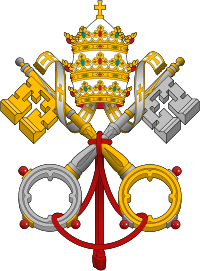























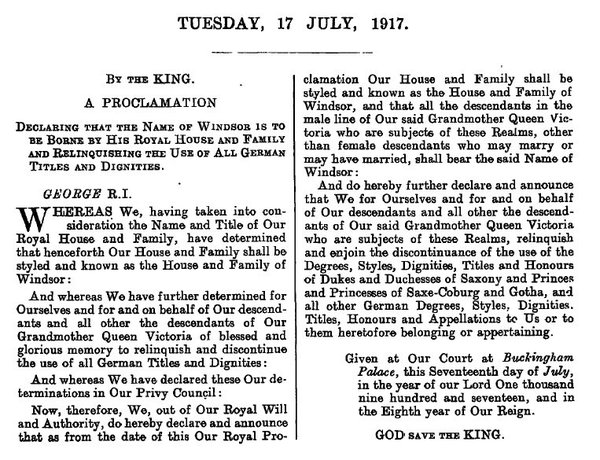




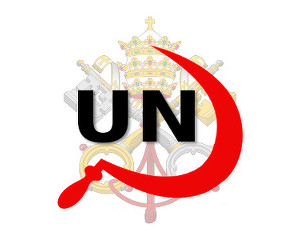
 1917 Code of Canon Law, Canon 185 invalidates (voids) all papacies since October 26, 1958 due to the fact Cardinal Giuseppe Siri was elected Pope on the Third ballot on Oct 26 1958 but the new Pope Gregory XVII was illegally prevented from assuming the office. A Pope was elected on October 26, 1958. Thousands of people witnessed a new Pope being elected by seeing white smoke and millions were informed by Vatican radio broadcasts beginning at 6:00 PM Rome time on October 26, 1958. The papacy of Francis, Benedict, John Paul II, John Paul I, Paul VI, John XXIII and any and all of their respective doctrines, bulls, letter patents and the Second Vatican Council are all invalidated (having no force, binding power, or validity) by Canon 185 because the 1958 conclave of cardinals elected Cardinal Giuseppe Siri Pope on Oct 26 1958. Cardinal Giuseppe Siri accepted the papacy by taking the name Pope Gregory XVII but was illegally prevented from assuming his elected office.. According to Canon 185 Cardinal Angelo Giuseppe Roncalli illegally assumed the papacy 2 days later by fraud and grave fear, unjustly inflicted against Cardinal Giuseppe Siri who was lawfully elected Pope Gregory XVII. Because no Pope has been lawfully elected since October 26, 1958 the Holy See (la Santa Sede/Seat) remains vacant.
1917 Code of Canon Law, Canon 185 invalidates (voids) all papacies since October 26, 1958 due to the fact Cardinal Giuseppe Siri was elected Pope on the Third ballot on Oct 26 1958 but the new Pope Gregory XVII was illegally prevented from assuming the office. A Pope was elected on October 26, 1958. Thousands of people witnessed a new Pope being elected by seeing white smoke and millions were informed by Vatican radio broadcasts beginning at 6:00 PM Rome time on October 26, 1958. The papacy of Francis, Benedict, John Paul II, John Paul I, Paul VI, John XXIII and any and all of their respective doctrines, bulls, letter patents and the Second Vatican Council are all invalidated (having no force, binding power, or validity) by Canon 185 because the 1958 conclave of cardinals elected Cardinal Giuseppe Siri Pope on Oct 26 1958. Cardinal Giuseppe Siri accepted the papacy by taking the name Pope Gregory XVII but was illegally prevented from assuming his elected office.. According to Canon 185 Cardinal Angelo Giuseppe Roncalli illegally assumed the papacy 2 days later by fraud and grave fear, unjustly inflicted against Cardinal Giuseppe Siri who was lawfully elected Pope Gregory XVII. Because no Pope has been lawfully elected since October 26, 1958 the Holy See (la Santa Sede/Seat) remains vacant.
 Hold the Crown (alias for temporal authority of the reigning Pope), the Crown appointed Governor General of Canada David Lloyd Johnston, the Crown's Prime Minister (servant) Stephen Joseph Harper, the Crown's Minister of Justice and Attorney General Peter Gordon MacKay and the Crown's traitorous military RCMP force, accountable for their crimes of treason and high treason against Canada and acts preparatory thereto. The indictment charges that they, on and thereafter the 22nd day of October in the year 2014, at Parliament in the City of Ottawa in the Region of Ontario did, use force and violence, via the staged false flag Exercise Determined Dragon 14, for the purpose of overthrowing and besieging the government of Canada contrary to Section 46 of the Criminal Code. In a society governed by the rule of law, the government and its officials and agents are subject to and held accountable under the law. Sign the online
Hold the Crown (alias for temporal authority of the reigning Pope), the Crown appointed Governor General of Canada David Lloyd Johnston, the Crown's Prime Minister (servant) Stephen Joseph Harper, the Crown's Minister of Justice and Attorney General Peter Gordon MacKay and the Crown's traitorous military RCMP force, accountable for their crimes of treason and high treason against Canada and acts preparatory thereto. The indictment charges that they, on and thereafter the 22nd day of October in the year 2014, at Parliament in the City of Ottawa in the Region of Ontario did, use force and violence, via the staged false flag Exercise Determined Dragon 14, for the purpose of overthrowing and besieging the government of Canada contrary to Section 46 of the Criminal Code. In a society governed by the rule of law, the government and its officials and agents are subject to and held accountable under the law. Sign the online  Two of the most obvious signs of a dictatorship in Canada is traitorous Stephen Harper flying around in a "military aircraft" and using Canadian Special Forces "military" personnel from JTF2 and personnel from the Crown's traitorous martial law "military" RCMP force as his personal bodyguards.
Two of the most obvious signs of a dictatorship in Canada is traitorous Stephen Harper flying around in a "military aircraft" and using Canadian Special Forces "military" personnel from JTF2 and personnel from the Crown's traitorous martial law "military" RCMP force as his personal bodyguards.

